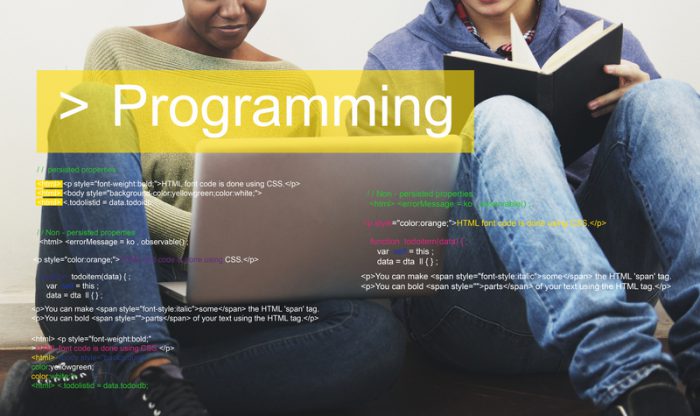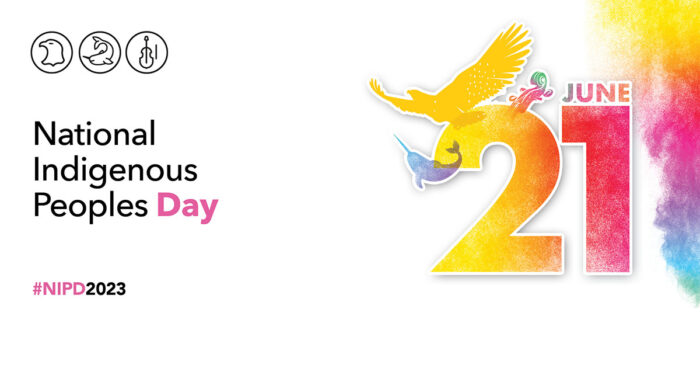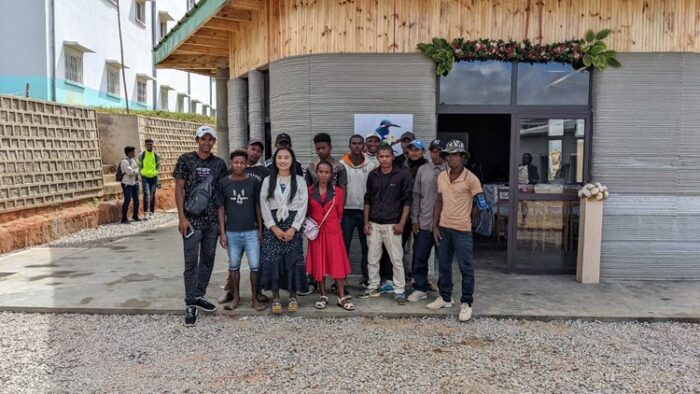A group of female coders in Nairobi are looking to change their world. And they're succeeding.
In the capital city of Kenya, schools and programs like AkiraChix and KamiLimu are breaking down the stereotypes that have kept women and girls out of coding (also known as software developing or computer programming). These groups train and mentor females so that they can learn tech skills that lead to higher paying jobs.
Some of these programs—like KamiLimu—have only been around for a few years. But in a very short time, they've transformed how many women see themselves in society.
The myth of men and coding
Being able to code is a huge advantage in today's world. Though computer programming isn't a new skill, it is one of the fastest-growing areas of the job market. In other words, knowing coding really helps you get a job!
But like so many careers, tech jobs are dominated by men. The big names in computer tech—Facebook's Mark Zuckerberg, Microsoft's Bill Gates, Apple's Tim Cook, Twitter's Jack Dorsey—are all male. And it's not just the people at the top. According to a 2020 survey of software developers, over 91.5 per cent of coders are male.
Overall, this has created the impression that women do not belong in coding careers. And that is simply not true.
Fair chance to make change
Former US president Barack Obama speaks with AkiraChix co-founder Judith Owigat during a 2015 visit to Kenya. (Getty Embed)
This is where programs like AkiraChix come in. As put by the group's founder, Linda Kamau in a recent Vogue magazine article, “When you give women a fair chance, they thrive.” People like Kamau are disproving the myth of men being better at coding.
They're giving young women an equal chance to learn.
Each of these programs are intense and demanding. They want students who are motivated and ready to learn quickly. KamiLimu programs run for eight months, while the signature program at AkiraChix, called codeHive, lasts for one year. During this time, young women are taught more than just coding.
They learn public speaking, organizational life skills, and other business skills. They attend conferences, make presentations, and are pushed to succeed. And succeed they do—today, many graduates of AkiraChix and KamiLimu are filling tech positions that previously would have only gone to men.
New generation
AkiraChix and KamiLumi are only a few of the programs in Kenya aimed at giving new opportunities to young girls. The Kibera School for Girls focuses on getting free education to primary school-aged girls. (Getty Embed)
In some ways, Kenya's tech industry is behind many other places. It is only in the last five years that computers have become common in homes. But this newness also means that the country has a chance to not make the same early mistakes as other countries.
As Kamau says in the Vogue story, they want to “correct the arc before we end up at the Silicon Valley level.” In other words, Kenya's tech industry can grow as one that is full of women from the start. Alongside similar programs like Akili Dada (which focuses on helping "girls and young women from underserved backgrounds to meet the urgent need for more African women in leadership"), these inspiring people are literally changing the world. In fact, they've been so successful, that they've expanded to helping women in neighbouring countries like Uganda and Rwanda.
To learn a little more about what these programs offer, watch this video from AkiraChix below.
 Coding is an important skill, but women are not always given the same opportunities to learn it as men are. (Photo
Coding is an important skill, but women are not always given the same opportunities to learn it as men are. (Photo 








